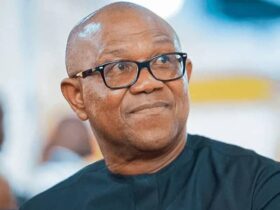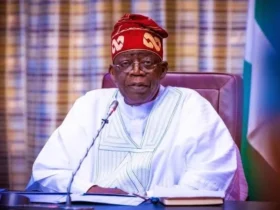
In a recent statement, Gbadebo Rhodes-Vivour, the 2023 Lagos State Gubernatorial Candidate for the Labour Party, voiced concern over what he described as the manipulation of unemployment data by the ruling All Progressives Congress (APC).
Rhodes-Vivour highlighted discrepancies in the reported unemployment rate, emphasizing that the methodology used by the National Bureau of Statistics (NBS) had undergone significant changes, potentially skewing the perception of joblessness in Nigeria. He cautioned against falling prey to what he termed as “lies and propaganda” propagated by the APC.
The controversy stems from the NBS’s decision to adopt new guidelines aligned with the International Labour Organization’s standards for calculating unemployment rates. Under the revised methodology, Nigeria’s unemployment rate purportedly plummeted from 33.3 percent to 4.1 percent between Q4 2020 and Q1 2023.
Critics, including Rhodes-Vivour, questioned the accuracy of these figures, pointing out that the revised approach may have underestimated the true extent of unemployment in the country. They accused certain factions within the APC of exploiting the methodological shift to bolster their political narrative.
Rhodes-Vivour’s remarks echoed concerns raised by analysts who cast doubt on the validity of the revamped unemployment data. Some experts argued that the reported decline in unemployment rates failed to reflect the economic realities faced by many Nigerians.
The situation escalated further when recent reports from the NBS revealed a surge in the unemployment rate to 5.0 percent in the third quarter of 2023, up from 4.2 percent in the preceding quarter. This revelation contradicted the earlier narrative of a significant decrease in joblessness.
According to the latest Labour Force Survey, the decline in the labour force participation rate further compounded concerns about the state of employment in Nigeria. The percentage of working-age individuals actively engaged in the labour force decreased from 80.4 percent in Q2 to 79.5 percent in Q3.
Rhodes-Vivour’s critique of the APC’s handling of unemployment data underscored broader anxieties about the government’s economic policies and transparency. His stance resonated with many who viewed the manipulation of statistics as a disservice to the Nigerian populace, particularly those grappling with unemployment and underemployment.









Leave a Reply